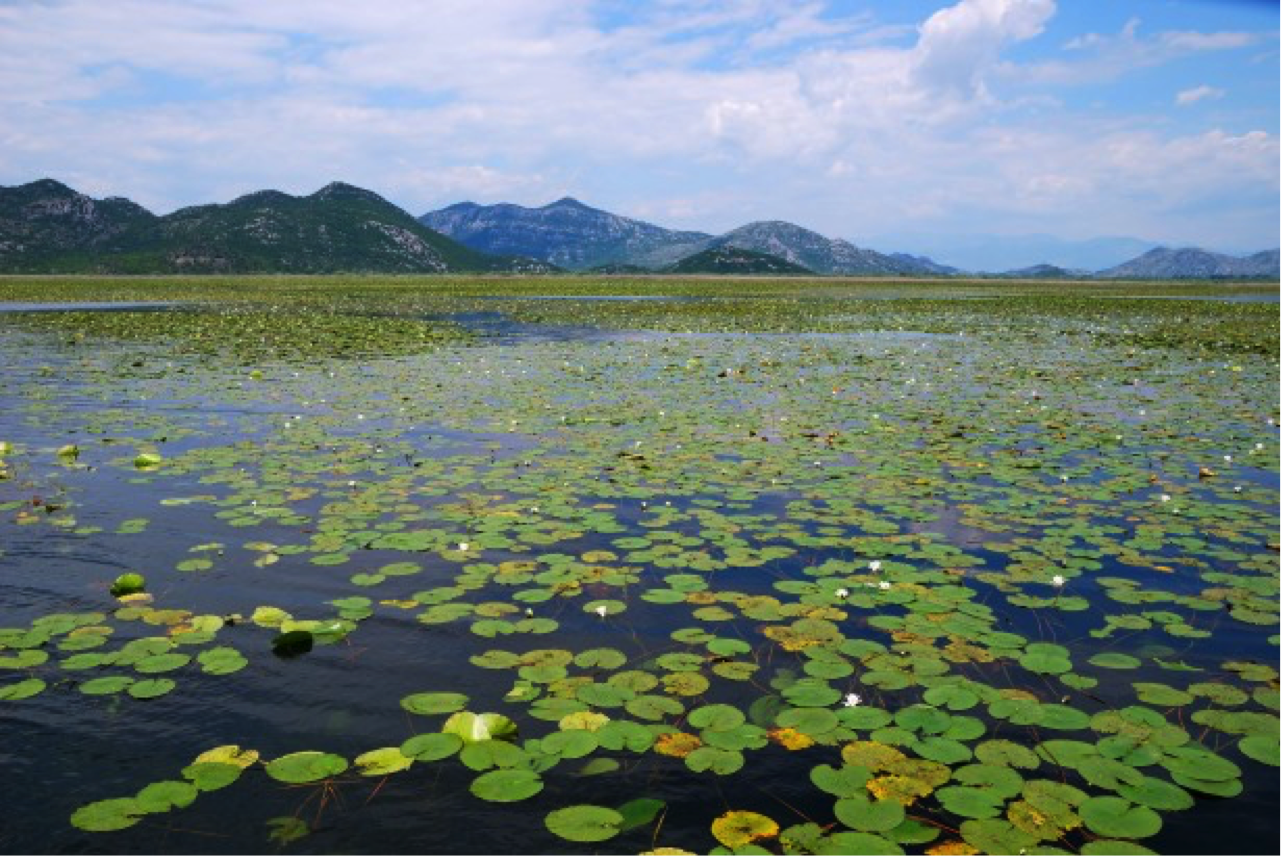Lake Skadar, the largest in South-Eastern Europe, is a remarkably important wildlife habitat. Its waters and the surrounding marsh, split between Montenegro and Albania, are home to diverse flora and fauna comprising almost 50 species of fish and 280 species of birds, many of which are endemic or endangered. The Montenegrin side of the lake has been a national park for almost 40 years and is part of the Ramsar list of wetlands of international importance since 1995.
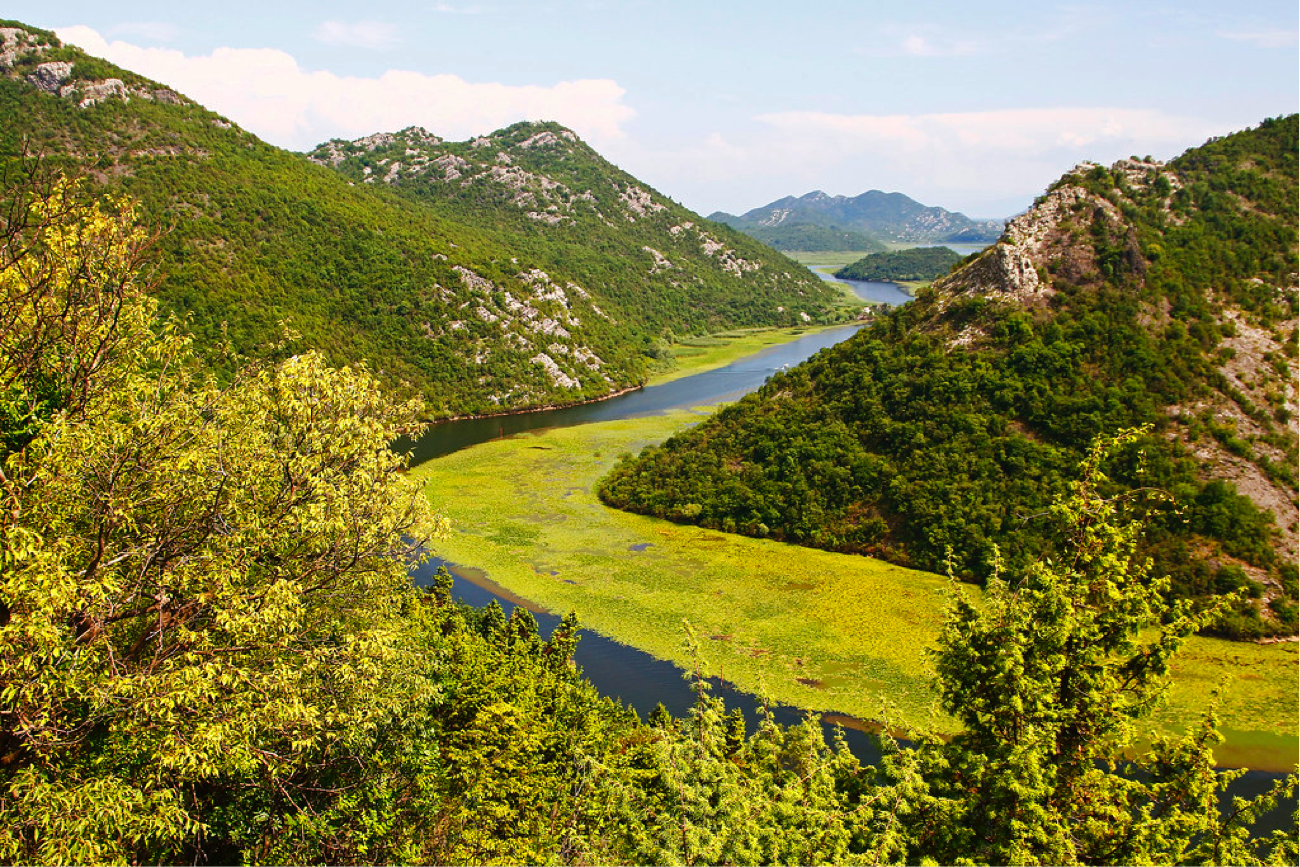
Unfortunately, the protected status of Lake Skadar does not guarantee the protection of its precious wildlife against all sorts of exploitation. In addition to pollution problems and troubling plans for new large-scale real-estate projects within the national park, illegal hunting and fishing are the constant threats jeopardizing this delicate ecosystem. To counter these threats, local organizers joined forces years ago and created the NGO Carp Security Group, aptly named after one of the most commonly found species of fish in Lake Skadar. Their work has been demanding, focused on catching and persecuting those who engaged in illegal fishing, and it often came at great personal risk and cost.
Vuk Saičić, one of the younger members of this NGO and its current director, joined the group about eight years ago. Back then he was still a teenager, coming to lake Skadar on fishing trips with his father and brother. To them and to the other fishermen who frequented the lake, the problem of illegal fishing and its pervasiveness was obvious: while on the water, they would often encounter fishermen who used illegal baits or other means of illegal fishing. These illicit means provided the perpetrators with huge daily catches, far exceeding the amounts of fish allowed to be pulled out by seasonal fishing licenses.
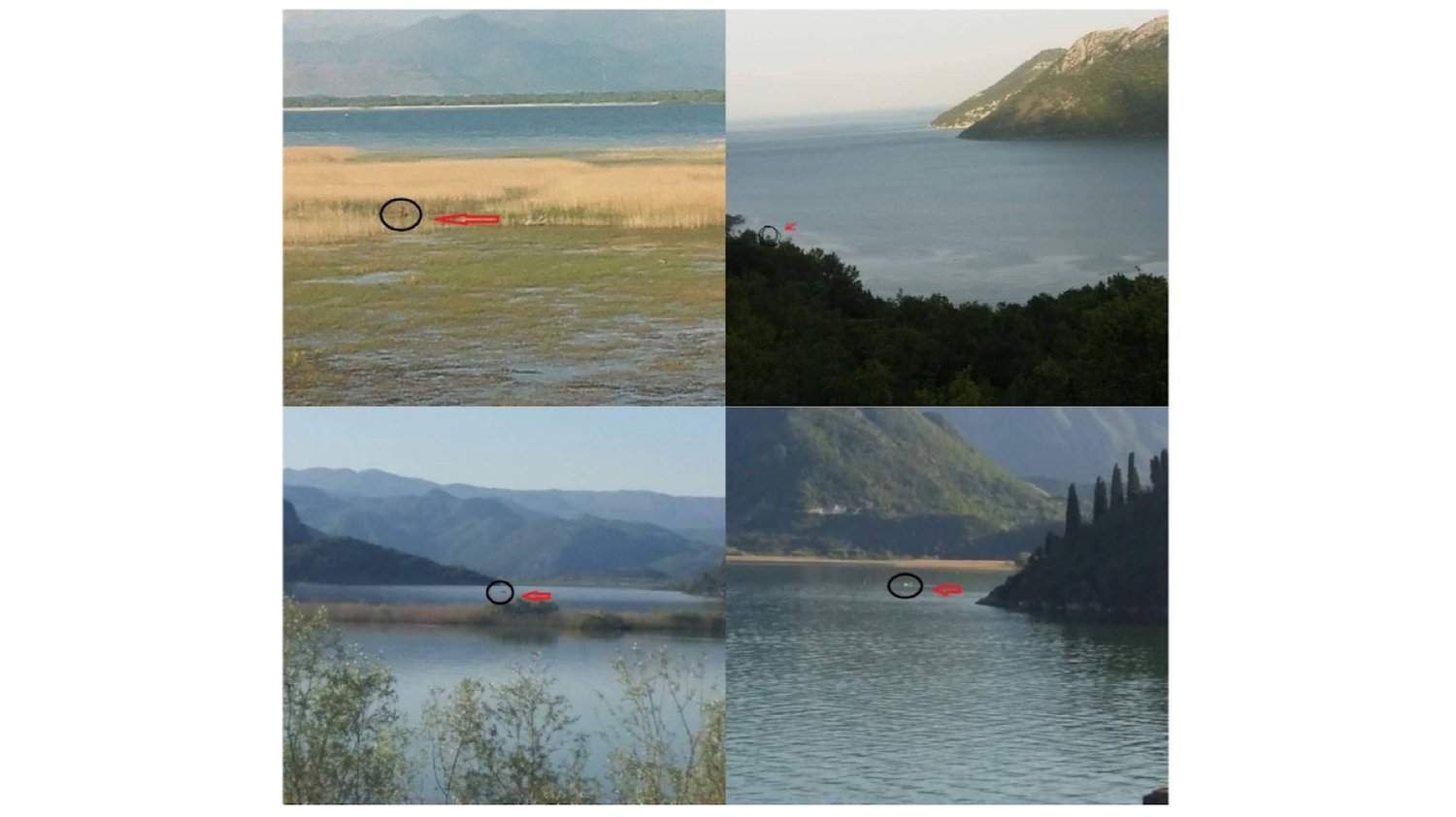
The roots of illegal fishing practices in lake Skadar run deep. Aleksandar Dragićević, an eco-activist who has been collaborating with Carp Security Group for years, explains it all started in the 1990s. The transition from socialist to neoliberal economic policy resulted in the closing down of the factories where the locals used to work. “Tens of thousands of jobs disappeared in just a few years”, says Aleksandar, adding that the former government tacitly allowed the locals to fish illegally in order to buy social peace and prevent riots. What started in the 1990s as their policy of “looking the other way” to allow the local population to fend for itself in times of crisis turned into ecocide of unimaginable proportions, Aleksandar concludes.
The management of the National park was aware of this harmful practice but ill-equipped, understaffed, and generally unable to do much to counter it. Ergo, when the Carp Security Group was formed, the National park was keen to have them stepping in and helping as volunteer observers, spotting and helping to bring in those engaging in illegal fishing.
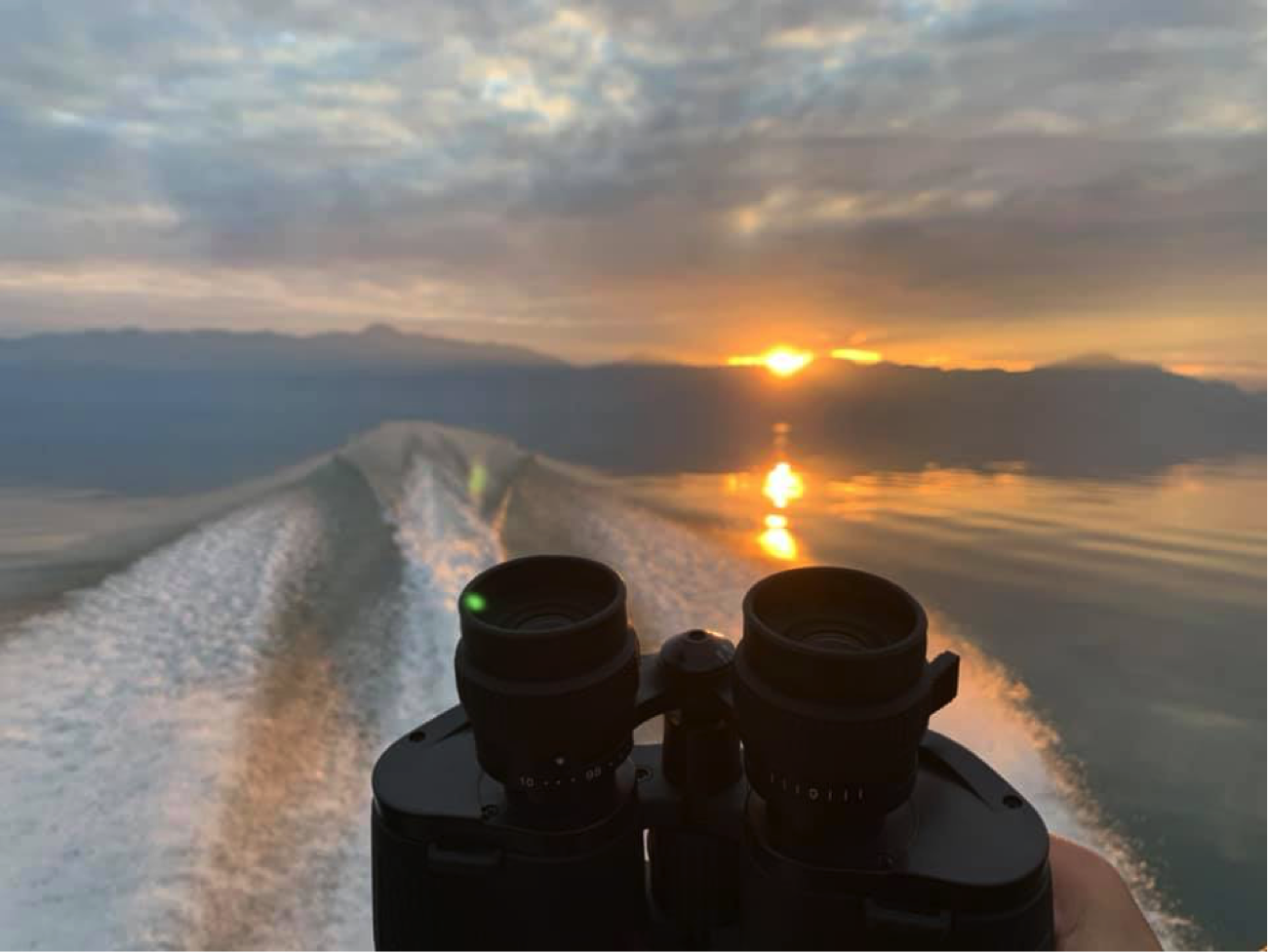
The first year of this cooperation was rather successful: as Vuk Saičić recalls, the teams of park rangers and volunteers seized more than 600 fishing nets, along with illegal baits, most of them intended to lure eel or bleak. Several offense charges and criminal proceedings were filed, but these court processes usually ended with minimal penalties, highlighting the inadequacy of the legal and institutional framework tasked with solving this problem. However, even though the collaboration between the park rangers and the Carp defenders was effective, it was only temporary and it didn’t last when the management of the National Park changed.
This kind of partnership between state institutions and civil society organizations is uncommon in Montenegro, and the lack of institutional mechanisms for sustaining this cooperation was one of the reasons it did not persist in Lake Skadar. Currently, the National Park continues to struggle with the lack of capacity to get in the way of the threat illegal fishing practices pose to the ecosystem. The Carp Security Group still does its best to survey the lake independently and report any suspicious activities. For their work, they have been subjected to attacks targeting their property and equipment. Still, Vuk Saičić reassures that the organization won’t be intimidated: they plan to improve their organizing practice and to remain vigilant in uncovering and opposing illegal fishing in lake Skadar. One of the ways of doing this is by addressing the systemic failings and institutional shortcomings that enable these illegal activities.
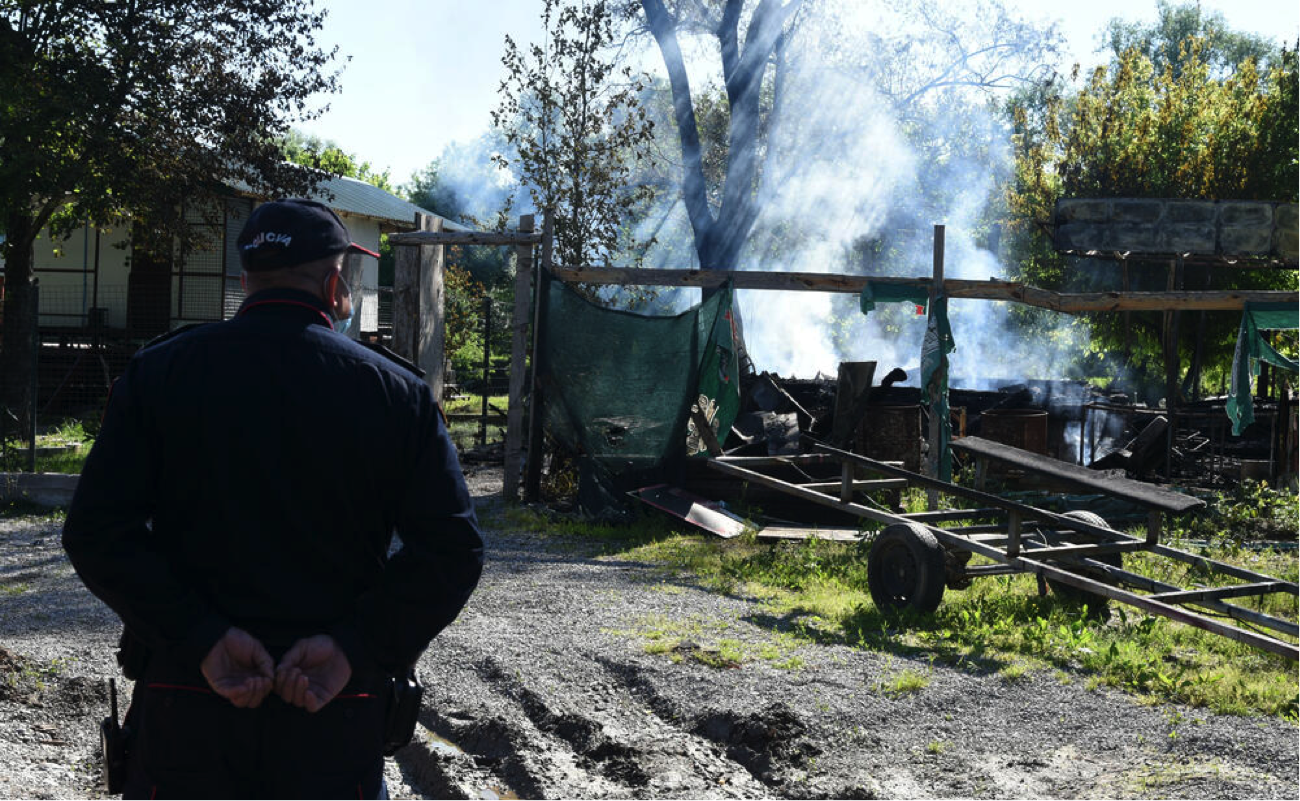
Advocating for a more strict prosecution of those engaging in illegal fishing and poaching in Montenegro is the work with which Vuk and many of his colleagues are currently engaged, working alongside several other non-government organizations committed to environmental and wildlife preservation. Center for the Protection and Research of Birds (CZIP) is one of them: last year, they spearheaded a campaign to introduce a moratorium to all hunting activities in Montenegro, which they see as the only way to allow enough time for the implementation of an effective reform of hunting. Ksenija Medenica, one of the CZIP program managers, explains that the rangers within protected areas and parks are poorly motivated: “Their salaries are low, and they do not have adequate equipment or the authority to react in case of encounters with poachers. On the other hand, outside the protected areas, the hunting grounds are controlled by hunting guards hired by the hunting associations themselves.” As hunters are effectively left to supervise themselves, the potential for corruption and malpractice becomes obvious, especially when reports of illegal hunting become worryingly frequent. Still, according to Ksenija, the Ministry of Agriculture maintains that the situation is not alarming and that the proper implementation of existing laws would be enough: “The key problem lies in the fact that the authorities do not see the seriousness of the problem.”
Towards the end of 2021, the Center for the Protection and Research of Birds collected more than 7.000 signatures in support of establishing a state-wide hunting moratorium. This effort was widely supported by NGOs and activists concerned with environmental protection but is still ignored by the responsible institutions. “A year after submitting the signatures and the petition, the Ministry remains silent – they did absolutely nothing about it”, says Ksenija. She also points out how the Ministry did not implement any of the recommendations from the last year’s conference on poaching, in which the Ministry participated, and to whose conclusions they had previously agreed. She adds how “This clearly shows they do not care about solving this issue.”
In Montenegro, the problems of illegal hunting and fishing remain just another set of important matters waiting to be seriously addressed, while a diffused network of committed grassroots groups takes the lead in battling the issue on the ground and hammering at protecting, at their own cost and risk, the epic wildlife that the park is home to.
